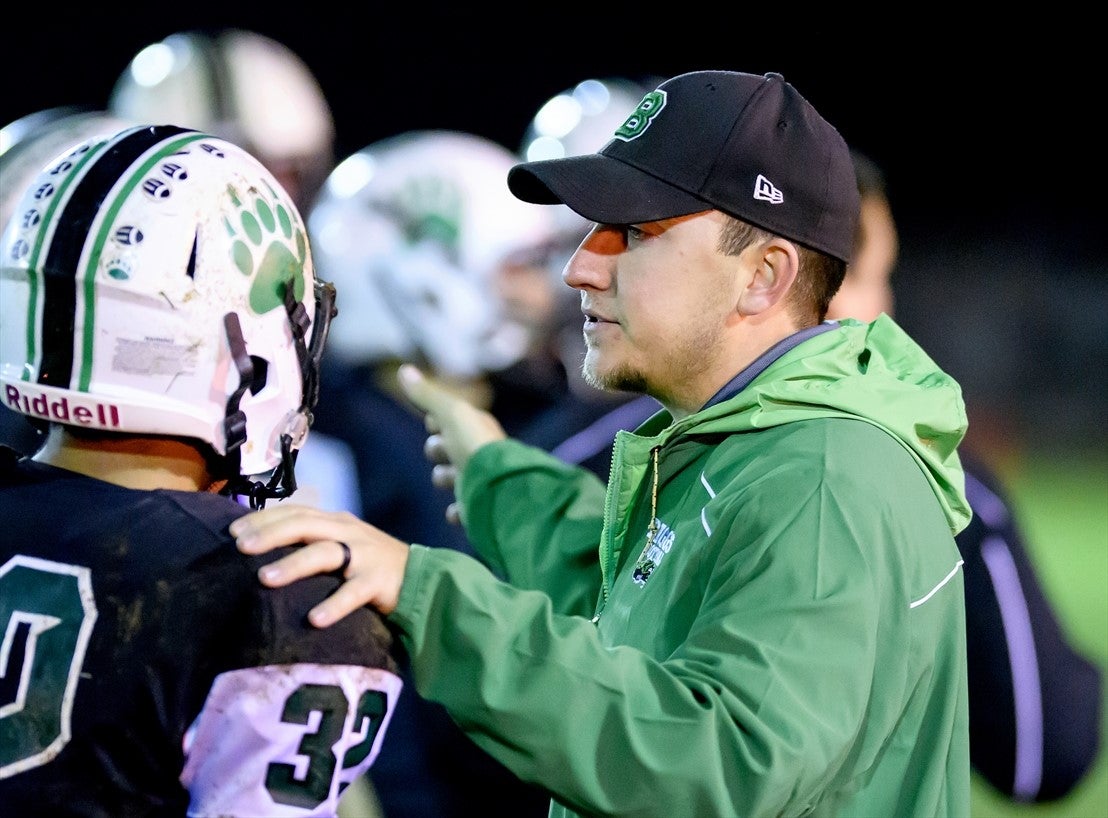Video: How is this kid only a freshman?
Jaxon Pikula of Thunder Basin (Wyo.) has a high ceiling with moves like this.
Self-confidence is a personal belief about achieving success. A team full of athletes with tremendous self-confidence will succeed at very high levels. Research has proved this for decades. Michael Mahoney and Marshall Avener of Penn State performed research on 13 male gymnasts who tried out for the 1976 USA Olympic gymnastics team. All 13 of them made the final trials, but the group would be trimmed down to the final team. They studied the relationship between the athletic performance and self-confidence of these athletes by using questionnaires and interviews.
What they found was that self-confidence was the main factor that divided these 13 Olympic hopefuls into two groups: those who made the team, and those who did not. Those athletes with much higher level of self-confidence earned a spot on the roster; those in the group with less self-confidence did not. Better athletes with less self-confidence lost roster spots to lesser athletes with higher levels of self-confidence. It's a fascinating study to read.
How can you as the coach build self confidence in your athletes? How you talk to kids, how you teach kids, how you coach kids up through a drill all are ways you can help to increase or decrease the self-confidence in kids.
Using verbal persuasion is the number one way to build up self-confidence in your athletes. Here are four ways to use verbal persuasion to build self-confidence.

Keeping athletes focused on the positive can directly effect his or her self confidence.
File photo by Gary Jones
There is another popular sports psychology study with Australian tennis coaches. They liberally used rewarding statements towards their athletes, even when they deserved negative coaching feedback. Performance improved because the athletes believed their coaches positive and encouraging talk meant they were playing well.
When an athlete fails, they carry negative feelings, and can use negative self-talk, which will negatively impact their performance. A good coach comes alongside that athlete to build them up by using verbal persuasion to let the athlete know they have the skills to complete the task next time, and that their current failure does not indicate future failure. Build up your athletes' belief in their skills.
Reduce fear of failure Take away any fear of failure by using positive self-talk. The more you build up each athlete, and the team collectively, the less fear the group will have. Let's face it, our kids know when a team is very good and when the odds are stacked against them. You'll never upset a bigger and better team by using negative talk, and building up negative feelings in your team. Using verbal positive persuasion will help your athletes to minimize their fear of that bigger and better opponent.
Discuss meaning of success and failure Your team might play their best game of the year, and still come up short on the scoreboard. Does this mean your team failed? In order to build self-confidence in your athletes, they need to have an understanding of what success and failure mean to the program. If you're team loses that game we just mentioned, but you encourage the efforts of your team, and reward their efforts with positive self-talk, that loss on the scoreboard can still be a success for the team's self-confidence.
Emphasize that confidence comes through work and disciplineUse verbal cues and positive talk to encourage a great work ethic discipline. Let your teams know that they get better through hard work and have self-discipline. Positive self-talk won't help anyone if you don't do your best to work at a high level, and do the little things right on a daily basis. Well known sports psychologist Albert Bandura claims that athletes with high self-confidence are more likely to try harder and chose more challenging tasks. Our job as coaches is to pull this out of our kids.
Chris Fore is a veteran Head Football Coach and Athletic Director from Southern California. He consults coaches and programs nationwide through his business Eight Laces Consulting.
